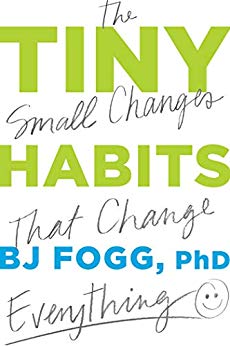More on this book
Community
Kindle Notes & Highlights
by
B.J. Fogg
Read between
May 13 - November 17, 2024
We eat drippy hamburgers in our cars and take conference calls while we’re at the beach with our kids because we feel so pressed for time. This pressure leads to a scarcity mindset—we believe that there will never be enough time, so we say no to changes because we feel like we don’t have the hours to cultivate new positive habits.
After you put your feet on the floor in the morning, immediately say this phrase, “It’s going to be a great day.” As you say these seven words, try to feel optimistic and positive.
Most people assume that to get a behavior to happen you need to focus on motivation first.
Let’s say you don’t meditate in the mornings as you’d hoped. Instead of blaming yourself for a lack of willpower or motivation, walk yourself through the steps: Did you have something to prompt you? What is making this hard to do?
Willpower decreases from morning to evening.
Imagine a big plant with small roots. When a powerful wind kicks up, the big plant might topple over because it’s not held firmly in place. And that’s how habit formation works. If you start with a big behavior that’s hard to do, the design is unstable; it’s like a large plant with shallow roots. When a storm comes into your life, your big habit is at risk. However, a habit that is easy to do can weather a storm like flexible sprouts, and it can then grow deeper and stronger roots.
We all have these tiny pockets of time: after we stop for a red light, after we get in line at the grocery store, after we start watering the plants on the porch. We have a choice.


